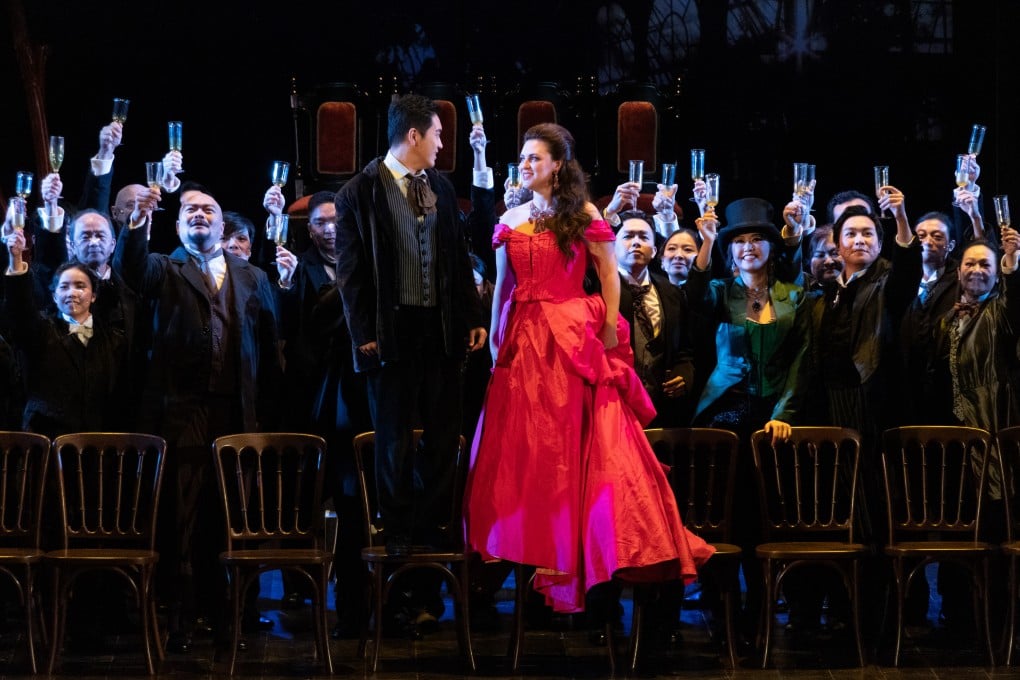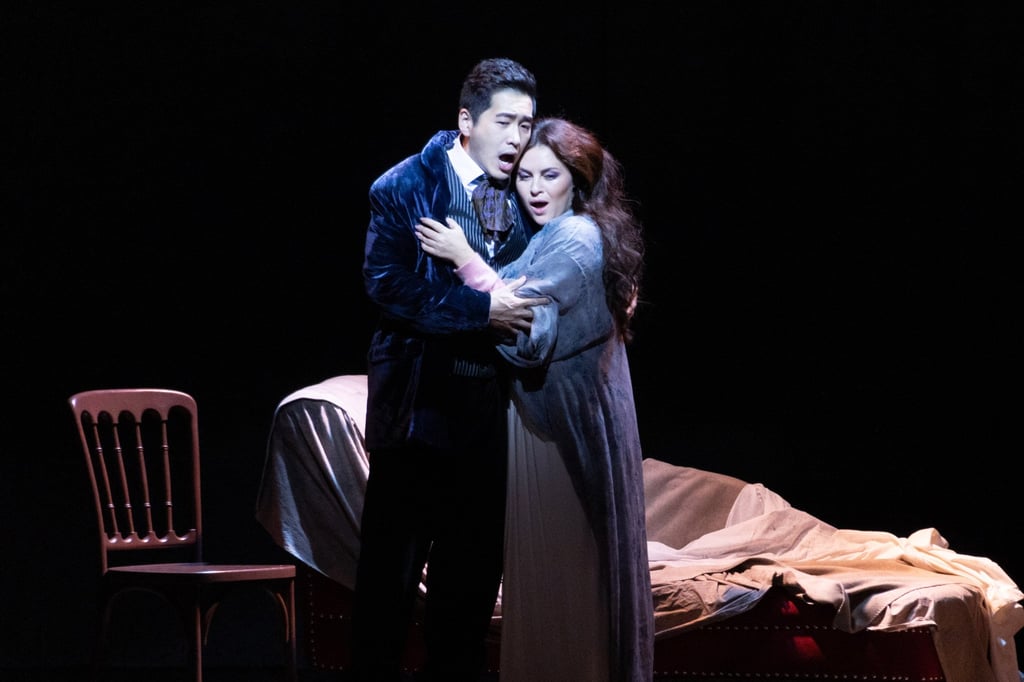Review | La Traviata by Opera Hong Kong is a world-class production, led by outstanding soprano Venera Gimadieva as Violetta, with some innovative staging choices
- New production of Verdi’s celebrated opera about a courtesan and her lover is magnificently sung and superbly acted by a cast led by Venera Gimadieva
- The production by Jean-Louis Grinda stages the opera in the 1850s when it was composed and has a number of innovations; some are effective, others less so

Opera Hong Kong has done itself and the city proud with its new production of Verdi’s La Traviata.
Magnificently sung and superbly acted by a world-class cast led by Venera Gimadieva, one of today’s most celebrated Violettas, and accompanied by the Hong Kong Philharmonic under leading opera conductor Renato Palumbo, this performance would have graced the stage of any great opera house.
It shows that Hong Kong still merits a place on the international cultural map despite having languished so long in the doldrums of Covid-19.
Based on The Lady of the Camellias by Alexandre Dumas, La Traviata is the story of Parisian courtesan Violetta, who gives up a life of luxury for one of pastoral simplicity (which she is paying for by secretly selling her possessions) for love of the innocent, ardent young Alfredo.

When his father, Germont, asks her to leave Alfredo to prevent his relationship with her from ruining his family, Violetta returns to Paris, although she knows that since she has consumption the life there will kill her.